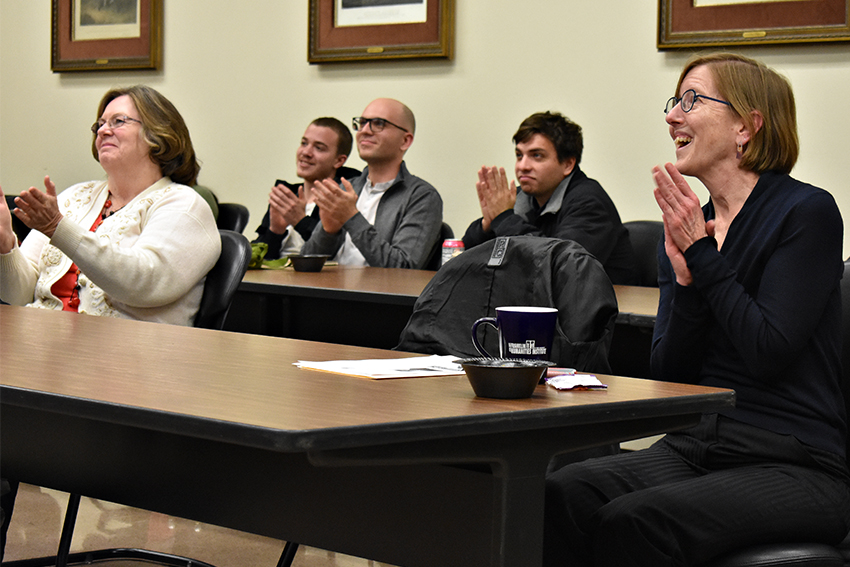UT treated attendees to popcorn, a special screening of award-winning film “War Don Don” and a discussion with a human rights lawyer on Wednesday.
Marking Rebecca Richman Cohen’s directorial debut in 2010, the documentary “War Don Don” recounts the war crimes trial of rebel leader Issa Sesay of the Revolutionary United Front during the Sierra Leone Civil War. Sesay, accused of crimes against humanity, said he was not the responsible for the crimes of an entire organization, but the film attempts to dig deeper into the human suffering that took place during the war and where accountability for that suffering lies.
After the screening, Paul Clark, a human rights lawyer from the United Kingdom and a member of Sesay’s defense team during the trial, appeared via video conference for a discussion with the audience. When asked about issues regarding legal entities that dole out extreme sentences and punishments, Clark said it is misguided for criminal prosecutions to demonize and condemn an individual “monster” for the crimes of larger groups and systems.
“I think the starting point should be the word modesty — modesty of ideology, indictment and philosophy.” Clark said. “This idea that whoever is being prosecuted is really bad … the more you think about it, the more you start to think ‘Perhaps there isn’t such a thing as this evil monster.’”
The film screening was sponsored by the Rapoport Center for Human Rights and Justice in their project to speak about mass incarceration and overcriminalization by the international human rights movement.
“We’re concerned about seeing how human rights advocacy has turned away from due process and prison conditions … and how it has accepted criminal punishment is the way to achieve human rights,” said Karen Engle, a professor and director in the Rapoport Center.
Held at Townes Hall, the audience consisted of students and other interested attendees. One student in attendance, law student Isaac Batt, said the film did a good job of displaying the issues with the trial while explaining the debate between punishing individuals who have committed crimes and going after the larger entities also responsible.
“I think it’s very difficult to say that (the trial) was fair,” Batt said. “It severely undermined the balance of the process (of international law).”





















